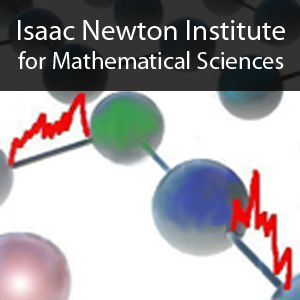Locating Congested Links in the Internet with Unicast Probes
44 mins 48 secs,
278.24 MB,
QuickTime
384x288,
25.0 fps,
44100 Hz,
847.98 kbits/sec
Share this media item:
Embed this media item:
Embed this media item:
About this item

| Description: |
Thiran, P (EPFL)
Friday 25 June 2010, 16:45-17:30 |
|---|
| Created: | 2010-06-29 15:27 | ||
|---|---|---|---|
| Collection: | Stochastic Processes in Communication Sciences | ||
| Publisher: | Isaac Newton Institute | ||
| Copyright: | Thiran, P | ||
| Language: | eng (English) | ||
| Distribution: |
World
|
||
| Credits: |
|
||
| Explicit content: | No | ||
| Aspect Ratio: | 4:3 | ||
| Screencast: | No | ||
| Bumper: | /sms-ingest/static/new-4x3-bumper.dv | ||
| Trailer: | /sms-ingest/static/new-4x3-trailer.dv | ||
| Abstract: | How can we locate congested IP (Internet Protocol) links from end-to-end measurements using active probing mechanisms? For practical reasons, we want to avoid using IP multicast protocols, which are not widely deployed, and to avoid relying on tight temporal synchronization between beaconing nodes, which is difficult to achieve between distant sites. Like other problems in network tomography or traffic matrix estimation, this inverse problem is ill-conditioned: the end-of-end measurement outcomes do not allow to uniquely identify the variables representing the status of the IP links. To overcome this critical problem, current methods often use the unrealistic assumption that all IP links have the same prior probability of being congested. We find that this assumption is not needed: spatial correlations are sufficient to either learn these probabilities, or to identify the variances of the link loss rates. We can then use the learned probabilities or variances as priors to find rapidly the congested links at any time, with an order of magnitude gain in accuracy over existing algorithms. These solutions scale well and are therefore applicable in today’s Internet, as shown by the results obtained both by simulation and real implementation using the PlanetLab network over the Internet.
This joint work with Hung X. Nguyen (Univ. of Adelaide), Denisa Ghita, Katerina Argyrak, and Maciej Kurant (EPFL). |
|---|---|
Available Formats
| Format | Quality | Bitrate | Size | |||
|---|---|---|---|---|---|---|
| MPEG-4 Video | 480x360 | 1.84 Mbits/sec | 618.00 MB | View | Download | |
| WebM | 480x360 | 558.49 kbits/sec | 182.91 MB | View | Download | |
| Flash Video | 480x360 | 805.67 kbits/sec | 264.36 MB | View | Download | |
| iPod Video | 480x360 | 505.19 kbits/sec | 165.77 MB | View | Download | |
| QuickTime * | 384x288 | 847.98 kbits/sec | 278.24 MB | View | Download | |
| MP3 | 44100 Hz | 125.0 kbits/sec | 40.80 MB | Listen | Download | |
| Windows Media Video | 477.02 kbits/sec | 156.52 MB | View | Download | ||
| Auto | (Allows browser to choose a format it supports) | |||||

